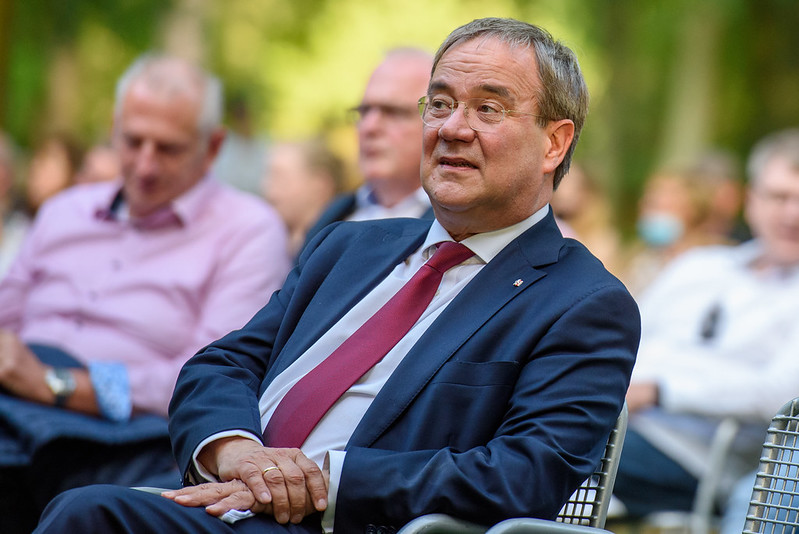Germany’s largest party, the Christian Democratic Union (CDU), has appointed a new leader after a year of deliberation in the midst of the coronavirus pandemic. Armin Laschet won 53% of the vote and will now hope to steer the party forward as it looks to progress past Merkel’s 18-year rule.
With a leading role in the EU, Europe’s largest economy plays an important role as the relative ‘middle ground’ to increasingly polarised governments to its East and West.
As Germany’s dominant political party, the world has looked on eagerly as the CDU have stumbled to replace one of the world’s most revered right-wing leaders.
Annegret Kramp-Karrenbauer was the initial successor handpicked by Merkel but she stepped down last year citing a lack of support from the German chancellor. The process to replace her was repeatedly postponed due to COVID-19.
Although seen primarily as a continuation of arch-centrist Merkel, some of Laschet’s views are unorthodox in the media of countries to his West.
Merkel’s spearheading of the recent investment deal between China and the EU was celebrated by Beijing as the biggest diplomatic achievement of 2020 and Laschet developed a working relationship with the world’s second biggest economy during his leadership of North Rhine-Westphalia, Germany’s industrial heartland. In the area sits the town of Duisburg, where China’s belt and road European section of the railway line ends.
The region is also home to Huawei’s European headquarters. Other NATO members, most prominently the UK and US, have loudly thrashed around at the progress of Chinese technology, culminating in various tantrum bans against Huawei. Laschet shows no sign of halting the work with Beijing in mutually beneficial endeavours. This is likely to cause rising tensions as the hawkish states demand obedience in enforcing their hegemony.
US-based publication Foreign Policy have recently described Merkel’s reign as “a prolonged period of drift”. To the magazine’s peers cooperative pragmatism is an alien concept compared to Washington’s relentless aggression they’re used to reporting on.
In 2014, Laschet explained that “Putin’s demonization is not a policy, but an alibi for the presence of one” and has previously emphasised the importance of economic and academic co-operation with Moscow. Germans tend to be less sympathetic to the hyperbole often floating around UK and US press vilifying the former KGB member.
Neither has Laschet been afraid to call out US imperialism, controversially bringing focus to the USA for supporting ISIS and the al-Nusra Front in Syria during that country’s civil war.
Germany’s foreign policy since the fall of Yugoslavia has been more restrained than its liberal peers. Restricted troop involvement in Afghanistan and abstaining on the vote for Libya’s invasion have been relative high points although resisting the rabid attitudes of its neighbours is clearly not the highest standard to set.
This low bar is the highlight of what Laschet brings to the table. He’s not expected to progress past Merkel’s austere fiscal policy and will likely look to rein in state intervention even more. His climate change plans are unambitious, with his published ten-point vision being painfully bereft of environmental plans.
In the long term, this will come to hurt his bloc’s position as the inevitable unprecedented migration from the global south that global warming will create dwarf the European migrant crisis that helped catapult the popularity of the far-right Alternative für Deutschland party. Around 1 million voters switched from the CDU to the AfD in 2017’s election where Merkel oversaw her party’s worst results since the first post-war elections in 1949.
The popularity for non-liberal parties continues to increase as capitalism’s contradictions come to the surface. Die Linke (The Left), which is the direct descendant of the Marxist-Leninist party of the former GDR has risen to become the Bundestag’s 5th biggest party.
This existential crisis of popularity of Germany’s two most powerful parties, the CDU and the Social Democratic Party, which has forced the two into repeated ‘grand coalitions’, compelled the CDU to vote for Artecht over Friedrich Merz.
Merz’s background as a corporate lawyer with hard-right tendencies made voting delegates wary of a potential ‘Green-Red-Red’ alliance of Greens, Social Democrats and the Left, should a candidate without big-tent support win. Artecht portrayed himself as a contrasting personality to Merz’s corporatism, accentuating his supposed grittiness and capitalising on being the son of a miner.
Politically, Artecht stood as a continuation of Angela Merkel, who’s shown for years that she can appeal to a wider range of the spectrum even as core voting numbers have slipped. Artecht is an experienced collaborator, having governed North Rhine-Westphalia in coalition with the Liberal Democrats.
Laschet may not end up taking on the candidacy for chancellorship for September’s elections. Although he will retain the party’s reins for the foreseeable future, he’s said that the Union’s chancellorship candidate will not be selected until April. Markus Söder, who leads the CDU’s sister party, the CSU, is being considered having gained popularity with his response to the coronavirus pandemic. Health Minister Jens Spahn has received recent ratings boosts for the same reason and may end up being the face of the party as it looks to halt the party’s decline.
Laschet’s response to COVID – he opposed increased lockdown restrictions after the first wave – has seen his wider popularity slide however. The CDU’s maintenance of power has largely relied on the popularity of Merkel rather than the party, which makes the wider indifference to Laschet a protruding sticking-point.
Laschet will have a big say in the final decision, regardless. As the USA and its lapdogs in Western Europe ratchet up the hostilities to those who oppose its hegemony, a middling voice in charge of Europe’s largest economy could help stave off the conflicts its liberal peers are desperate to inflict on the disobedient peoples to its East.
Mali Kakembo, is a member of YCL Wales



